
Enter The Void
William Beutler + Renan Borelli
In this show, William Beutler and Renan Borelli, formerly of KubrickCast, examine one mind-bending film per episode. Directors whose films are likely to come up: David Lynch, Werner Herzog, Christopher Nolan, Terrence Malick, Terry Gilliam, Lars Von Trier, and yes, Stanley Kubrick.
- 2 hours 25 minutesSXE12: THE FINALE
Believe it or not, we have arrived at the 100th and longest and final episode of ENTER THE VOID. On today's episode, your hosts Bill and Renan sit down together in person to reminisce about how they originally came up with the idea for this podcast, how they launched their earlier show KubrickCast, and even how they met in the first place. Next, they revisit their definition of a mindfuck movie for the last time, and then name their mindfuck "Mt. Rushmore" for both the greatest films covered on the series and their favorites... and a few of their least favorites. Plus, what are some films this show would cover if there was a season X+1? Which episodes were the most popular? They also take listener questions, addressing what kind of mindfuck movie they might make, what was the first mindfuck film, and could there still be a book in the future? You'll just have to listen! Finally, a massive thanks to all of Enter the Void's listeners and guest hosts and friends who helped to make this show far more popular than we could have ever imagined.
Episode links:
- KubrickCast
- S1E1: Phantom of the Paradise
- S1E2: Primer
- S1E6: Lost Highway
- S1E9: Enter the Void
- S1E10: Synecdoche, New York
- S2E1: Eraserhead
- S2E2: Brazil
- S2E10: The Tree of Life
- S3E7: Chungking Express
- S3E8: World of Tomorrow
- S4E6: Last Year at Marienbad
- S5E1: Solaris
- S5E8: Twin Peaks: Fire Walk With Me
- S6E1: Donnie Darko
- S6E8: Mulholland Drive
- S7E8: Eternal Sunshine of the Spotless Mind
- S8E1: American Psycho
- S8E5: The Holy Mountain
- S9E1: Total Recall
- S9E2: Raw
- SXE6: Mindfuck Television
- SXE11: Blue Velvet
Show links:
- Subscribe: Apple Podcasts
- Discuss: ETV Podcast Club
- Follow: Facebook + Twitter
- Archive: enterthevoid.fm
10 July 2019, 3:45 pm - 2 hours 14 minutesSXE11: BLUE VELVET
For our final regular episode of the podcast (yep, the whole thing) we finally come to one of the essential films of the mindfuck movie discussion, David Lynch's breakthrough as a popular artist, 1986's BLUE VELVET. Starring Kyle MacLachlan, Isabella Rossellini, Laura Dern, and of course Dennis Hopper, it was highly controversial upon release, and soon became the favorite film of academics and critical theorists—not to mention the late David Foster Wallace—and today stands as a film classic. But how challenging is it 33 years later? What are we to make of the multi-layered symbolism, the sexual violence, how much was borrowed into Twin Peaks, Lynch's Reaganism, its 50-plus minutes of deleted scenes, and its place in David Lynch's filmography? For the last time, your hosts Bill and Renan take on one film and see where it takes them. Then in two weeks, we'll return for our grand finale, a recap / retrospective of the entire podcast project.
Episode links:
- Blue Velvet on IMDb
- Blue Velvet on Wikipedia
- Roger Ebert initial review
- Roger Ebert's follow-up column
- Janet Maslin original NYT review
- Slate retrospective review in 2011
- AV Club retrospective review in 2011
- Mental Floss list of Blue Velvet factoids
- YouTube: Siskel & Ebert on Blue Velvet
- David Lynch's "eye of the duck" concept
- Cinephilia & Beyond essay on Blue Velvet
- Sheila O'Malley on Dean Stockwell as Ben
- BBC essay on Blue Velvet's cultural context
- Stephanie Lam on BV's exploration of duality
- Dennis Lim on Blue Velvet and the Reagan 80s
- Book: Dennis Lim's The Man from Another Place
- 1990 NYT article on Twin Peaks, uses "Lynchian"
- Freudian analysis of the characters' favorite beers
- 27,000 words on BV symbolism at Idyllopus Press
- DFW discusses Blue Velvet on Charlie Rose
- Blue Velvet shooting script as of 8-24-84
- YouTube: Blue Velvet deleted scenes
Show links:
- Subscribe: Apple Podcasts
- Discuss: ETV Podcast Club
- Follow: Facebook + Twitter
- Archive: enterthevoid.fm
26 June 2019, 2:30 pm - 1 hour 29 minutesSXE10: GROUNDHOG DAY
Our pick for this episode is not your usual, bog standard time travel psychological horror... but then again, maybe it is? Today we are doing GROUNDHOG DAY, the 1993 romantic comedy directed by Harold Ramis, starring Bill Murray and Andie MacDowell. A sleeper of a mindfuck, Groundhog Day warmed hearts and tickled funny bones when it debuted early in the Clinton era, but by the 21st century it had come to be recognized for its theological significance—and then YouTube got hold of it, and the rest is history. Today, we discuss: whether it's a proper mindfuck; how long Phil actually spends in the time loop; connections to Buddhism, Catholicism and Judaism; its relationship to Camus, Sisyphus and existentialism; its place in the comedy pantheon; plus: is Ned Ryerson actually the devil?
Episode links:
- Groundhog Day on IMDb
- Groundhog Day on Wikipedia
- Roger Ebert 2005 review
- NYT on Groundhog Day's religious themes
- National Review cover story on Groundhog Day
- Mental Floss roundup of popular interpretations
- Film School Rejects: DVD commentary highlights
- IFC: How long does Phil spend in the time loop?
- ShortList: Is Ned Ryerson the Devil?
- Original Reddit Ryerson-as-Devil post
- Den of Geek on the original Danny Rubin script
- Michael Faust essay for Philosophy Now
- NPR on the philosophy of Groundhog Day
- Empire ranks it as top all-time comedy
- Fan edit: Every Day in One Day
- Fan edit: How Rita Experienced Groundhog Day
- TV Tropes discussion about "we'll rent to start"
- Edge of Tomorrow on Wikipedia
- Russian Doll on Wikipedia
- Friday Black on Wikipedia
Show links:
- Subscribe: Apple Podcasts
- Discuss: ETV Podcast Club
- Follow: Facebook + Twitter
- Archive: enterthevoid.fm
12 June 2019, 2:30 pm - 1 hour 23 minutesSXE9: PERFECT BLUE & PAPRIKA
So this episode was supposed to be just about PERFECT BLUE, Satoshi Kon's 1997 animated psychological thriller. But we couldn't stop at just one! So Renan and Bill went ahead and watched PAPRIKA, his 2006 science-fiction opus too, which also sadly would be his last feature film. Today, your hosts talk about the life and career of Satoshi Kon, his incredible imagination and mastery of technique, and how both films examine themes of dual identities. Also discussed: Perfect Blue on the internet and celebrity culture; Paprika on dreams and filmmaking; how Darren Aronofsky borrowed well and Christopher Nolan borrowed poorly—and borrow they did; plus, are these films definitely anime?
Episode links:
- Satoshi Kon on Wikipedia
- Perfect Blue on IMDb
- Perfect Blue on Wikipedia
- Paprika on IMDb
- Paprika on Wikipedia
- Satoshi Kon interview on PerfectBlue.com
- Little White Lies on the optimism of Perfect Blue
- Roisin Kiberd on Perfect Blue and internet celebrity
- Peach's Almanac tries to explain Perfect Blue
- SyFyWire tries to explain what happens in Paprika
- ThatMomentIn also tries to explain Paprika
- Badass Digest on Black Swan vs. Perfect Blue
- Film School Rejects on Inception and Paprika
- "Screaming in a bathtub" side-by-side
- "Shattered reality" side-by-side
- Luke Thompson on Kon as anime
- Satoshi Kon - Editing Space & Time by Tony Zhou
- Dazed Digital on The Dreaming Machine
- The Guardian obituary for Satoshi Kon
Show links:
- Subscribe: Apple Podcasts
- Discuss: ETV Podcast Club
- Follow: Facebook + Twitter
- Archive: enterthevoid.fm
29 May 2019, 2:35 pm - 1 hour 23 minutesSXE8: THE FILMS OF LUIS BUÑUEL
How have we got this far without discussing anything by the original film surrealist, Luis Buñuel? Well, today we rectify the situation and discuss not one but four films from the Spanish exile / expatriate moviemaking legend. In this episode, your hosts examine the previously promised UN CHIEN ANDALOU (1929), THE EXTERMINATING ANGEL (1962), and THE DISCREET CHARM OF THE BOURGEOISIE (1972), plus one of his more accessible films, BELLE DE JOUR (1967) with Catherine Deneuve. Among the topics for discussion: Buñuel's peripatetic life and unpopular politics, his roles in both the Surrealist and French New Wave movements, his use of dreams and the subconscious, the targets of his satire, and connections to the works of David Lynch and Last Year at Marienbad.
Episode links:
- Luis Buñuel on IMDb
- Luis Buñuel on Wikipedia
- Surrealism on Wikipedia
- French New Wave on Wikipedia
- J. Hoberman on Buñuel's politics in The Nation
- Un Chien Andalou on IMDb
- Un Chien Andalou on Wikipedia
- Un Chien Andalou on YouTube
- Roger Ebert review of Un Chien Andalou
- The Exterminating Angel on IMDb
- The Exterminating Angel on Wikipedia
- Roger Ebert review of The Exterminating Angel
- Criterion essay on The Exterminating Angel
- Senses of Cinema on The Exterminating Angel
- The Take on The Exterminating Angel
- The Cinephile Fix on The Exterminating Angel
- Belle de Jour on IMDb
- Belle de Jour on Wikipedia
- Roger Ebert review of Belle de Jour
- The Discreet Charm of the Bourgeoisie on IMDb
- The Discreet Charm of the Bourgeoisie on Wikipedia
- Roger Ebert review of Discreet Charm
- Pauline Kael review of Discreet Charm
- Celluloid Wicker Man on walking in Discreet Charm
- The Outline on DFW and literary journalism
- S9E5: JOHNNY GOT HIS GUN
Show links:
- Subscribe: Apple Podcasts
- Discuss: ETV Podcast Club
- Follow: Facebook + Twitter
- Archive: enterthevoid.fm
15 May 2019, 2:35 pm - 1 hour 37 minutesSXE7: FIGHT CLUB
At long last we get around to a movie that was on our mind when we started this podcast: FIGHT CLUB, the 1999 David Fincher film starring Edward Norton, Brad Pitt and Helena Bonham Carter, based on the 1996 Chuck Palahniuk novel of the same name. If you don't like politics with your movies, then today's show isn't for you, because Fight Club was born in controversy, released to Boomer acrimony, and then, once it attained cult status, attracted the unwanted—but not altogether surprising—approval of some of the most loathsome ideologues of the 21st century. Today, Bill and Renan take on their most problematic fave, discussing themes of consumerism, capitalism, fascism, toxic masculinity, intergenerational animosity, violence in the media, the culture wars, the WTO, Columbine, Donald Trump, Jeff Bezos' mistress, the death of satire, and much more.
Episode links:
- Fight Club on IMDb
- Fight Club on Wikipedia
- Fight Club (novel) on Wikipedia
- Roger Ebert negative review in CST
- David Denby negative review in NYer
- Liza Schwarzbaum negative review in EW
- Janet Maslin positive review in NYT
- Jim Emerson contemporaneous defense
- Dennis Lim 2009 positive reappraisal in NYT
- Garin Pirnia 2016 positive reappraisal in Esquire
- Best. Movie. Year. Ever. excerpt in The Ringer
- NYT op-ed: "The End of Satire"
- Poe's law on Wikipedia
- Maggie Mae Fish: "Cultural Fascism" video
- ContraPoints: "What's Wrong With Capitalism" video
- 2009 NYC attack blamed on Fight Club
- Broadly on Fight Club's appeal to the alt-right
- New Statesman on why Fight Club isn't fascist
- The Guardian on Fight Club, Brexit, and Trump
- Analysis of Fight Club's Marxist content
- Junkee on Fight Club's "bad fans"
- FSR summary of DVD commentary
- 11 Hidden Secrets in Fight Club
Show links:
- Subscribe: Apple Podcasts
- Discuss: ETV Podcast Club
- Follow: Facebook + Twitter
- Archive: enterthevoid.fm
1 May 2019, 2:30 pm - 2 hours 14 minutesSXE6: MINDF**K TELEVISION
This episode is a little different: rather than taking on a single film or even the work of one director, the scope in this extra-long bonus episode is the greatest mindfucks across more than 50 years of TV history. In three separate segments, Bill and Renan each make their "Mount Rushmore" picks for the greatest television series, single episodes and standout moments in mindfuck TV. Shows discussed in this episode include: Twin Peaks, Black Mirror, LOST, The Leftovers, The X-Files, The Prisoner, The Good Place, Wild Palms, Russian Doll, Dark, The Sopranos, Star Trek, The Twilight Zone, Tales from The Darkside, Friday the 13th: The Series, St. Elsewhere, Newhart, Mr. Robot, and Get a Life.
Episode links:
- Alex Pappademas on Wild Palms
- BFI on The Prisoner's cultural influence
- Keith Phipps on Harlan Ellison's Star Trek episode
- Uproxx on The Sopranos' dream sequences
- The Tommy Westphall Universe Hypothesis
- AV Club on The Good Place's season 1 plot twist
YouTube clips:
- Wild Palms miniseries trailer
- LOST: "We have to go back"
- Twin Peaks: "How's Annie?"
- The Sopranos: "Funhouse" dream sequences
- St. Elsewhere: Snow globe ending
- The Good Place: Eleanor's revelation
- Game of Thrones: Red Wedding
- Twin Peaks: Wally Brando
- The Sopranos: series finale conclusion
- Friday the 13th: "Vanity's Mirror" full episode
Show links:
- Subscribe: Apple Podcasts
- Discuss: ETV Podcast Club
- Follow: Facebook + Twitter
- Archive: enterthevoid.fm
17 April 2019, 2:30 pm - 1 hour 26 minutesSXE5: THE FLY
In today's episode, Bill and Renan return to the work of David Cronenberg—a director twice before discussed on this podcast—to consider the 1986 film many believe to be his masterpiece: THE FLY, starring Jeff Goldblum as a scientist who accidentally fuses his genes with a common housefly, and Geena Davis as the woman who loves him. So: is it actually Cronenberg's best film? Is this movie about aging, disease, and AIDS specifically? Or is it a cautionary tale about science and the nuclear age? What does this movie want us to make of Stathis Borans? Do we think The Fly got Jeff Goldblum his famous role in Jurassic Park? All these questions will be answered, plus an incomplete discussion of Cronenberg's filmography, and whether it's already complete.
Episode links:
- The Fly on IMDb
- The Fly on Wikipedia
- Matt Zoller Seitz review of The Fly
- Collider review of The Fly
- The Fly review at RogerEbert.com
- Den of Geek calls it Cronenberg's masterpiece
- GEEKS on The Fly as the greatest remake ever
- FSR summary of director's commentary
- Is Stathis Borans the hero of The Fly?
- Evaluating the science of The Fly
- Variety review of The Fly opera
- Butterfly baby alternate ending
- The big reveal from the 1958 version
- CGP Grey on Star Trek teleporters
- Chinese scientists teleport particles... kind of
- The Atlantic on the "unethical female journalist" trope
- ENTER THE VOID S1E2: MAPS TO THE STARS
- ENTER THE VOID S2E4: VIDEODROME
Show links:
- Subscribe: Apple Podcasts
- Discuss: ETV Podcast Club
- Follow: Facebook + Twitter
- Archive: enterthevoid.fm
3 April 2019, 2:30 pm - 1 hour 25 minutesSXE4: BEING JOHN MALKOVICH
In the waning months of the 20th century, a remarkable little film from a pair of unknown filmmakers arrived in US cinemas, and it became a bona fide sensation. That was BEING JOHN MALKOVICH (1999), written by Charlie Kaufman and directed by Spike Jonze, starring John Cusack, Cameron Diaz, Catherine Keener, and of course, John Malkovich. It was a formative film experience for your hosts, and twenty years later Bill and Renan revisit it for you today. Among the topics discussed: the film's reception at the time and how it looks now that the novelty has worn off; was 1999 the greatest year in cinema history, and what happened to indie films after?; how great art becomes problematic faves; what comes after after postmodern irony?; how it compares to Adaptation, Eternal Sunshine, and other Kaufman-Jonze work; plus, Bill's very much not good Orson Bean story and the BJM / Get Out fan theory that might yet prove to be true.
Episode links:
- Being John Malkovich on IMDb
- Being John Malkovich on Wikipedia
- Roger Ebert review of BJM in 1999
- Variety review of BJM in 1999
- Film Comment review / essay in 1999
- Scott Tobias DVD review of BJM in 2012
- "16 heady facts" about BJM from Mental Floss
- Vulture's Cameron Tung on BJM and celebrity obsession
- Amy Nicholson on 1999 being the greatest year in cinema
- THR: Charlie Kaufman on struggling to get films made
- Variety: Charlie Kaufman's upcoming Netflix series
- John Malkovich "blowjob" quote in Rolling Stone
- Jordan Peele on the BJM / Get Out theory
- The Script Lab on BJM / Get Out theory
- Interiors on the 7 1/2 floor
- Being Charlie Kaufman
Show links:
- Subscribe: Apple Podcasts
- Discuss: ETV Podcast Club
- Follow: Facebook + Twitter
- Archive: enterthevoid.fm
20 March 2019, 2:30 pm - 1 hour 18 minutesSXE3: INCEPTION
How has this show never done a Christopher Nolan film before? Today your hosts rectify that and discuss his 2010 film INCEPTION, a $800 million-grossing summer blockbuster with no pre-established IP, unless being the next film by the guy who made The Dark Knight somehow counts. In this episode, Renan and Bill discuss: whether this and other Nolan features are truly mindfucks or mere puzzle films; whether they work on a second time viewing; how Nolan uses time, editing, and music to achieve his ends; defending Nolan from the haters on film Twitter; whether it's OK for the dialogue to be pretty much all exposition; whether Mal is actually a villain and if Dom should be considered one—in fact, isn't Dom a little bit like Red Dead's Dutch van der Linde?
Episode links:
- Inception on IMDb
- Inception on Wikipedia
- Roger Ebert review of Inception
- AO Scott review of Inception
- Vulture interview with Dileep Rao
- Christopher Nolan's hand-drawn dream map
- Itzkoff interview with Christopher Nolan
- Deadline interview with Nolan
- Bilge Ebiri on the end of Inception
- Christopher Nolan on the film's ending
- More Nolan explaining the films ending
- ScreenRant video on the ending
- Big Other critical evaluation of Inception
- The Ringer on Inception's legacy
- The Ringer Rewatchables episode on Inception
- Alissa Wilkinson on Nolan's career overall
Show links:
- Subscribe: Apple Podcasts
- Discuss: ETV Podcast Club
- Follow: Facebook + Twitter
- Archive: enterthevoid.fm
6 March 2019, 3:30 pm - 1 hour 26 minutesSXE2: 8½
Today Renan and Bill lose their neorealist chains and grapple with the 1963 Federico Fellini film 8½, hailed by armchair film scholars as one of the greatest films of all time. More than 50 years on, how does it hold up? Undoubtedly and deservedly a classic, 8½ today looks different than it did in the 1960s, or even the 1990s. In this episode: 8½'s attitudes toward women; Pauline Kael's critical review; Guido's heirs including Don Draper; Fellini's virtuosic filmmaking; whither the imperial film director; and other films about filmmaking. Also, Bill offers some hot Sundance tips, and we highlight a listener's electronic music project providing an alternate score to Eraserhead.
Episode links:
- 8½ on IMDb
- 8½ on Wikipedia
- Pauline Kael original 8½ review
- Stanley Kaufman original 8½ review
- Roger Ebert 8½ review from 2000
- Michael Newton 8½ essay from 2015
- Criterion dream sequence roundup
- Tullio Kezich essay on Fellini and 8½
- Bilge Ebiri on 8½'s influence at 50
- Brian Morton on reading old books in NY Times
- Henry alternate Eraserhead soundtrack on Bandcamp
Show links:
- Subscribe: Apple Podcasts
- Discuss: ETV Podcast Club
- Follow: Facebook + Twitter
- Archive: enterthevoid.fm
20 February 2019, 3:30 pm - More Episodes? Get the App
Your feedback is valuable to us. Should you encounter any bugs, glitches, lack of functionality or other problems, please email us on [email protected] or join Moon.FM Telegram Group where you can talk directly to the dev team who are happy to answer any queries.
 Criterion Close-Up
Criterion Close-Up
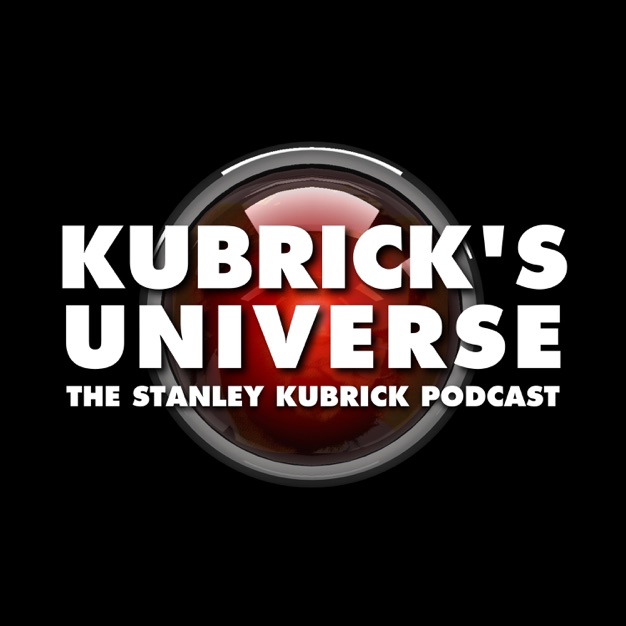 Kubrick's Universe - The Stanley Kubrick Podcast
Kubrick's Universe - The Stanley Kubrick Podcast
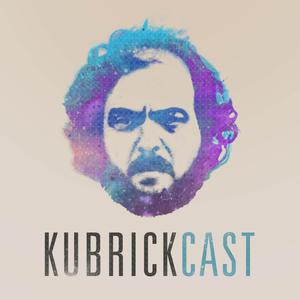 KubrickCast
KubrickCast
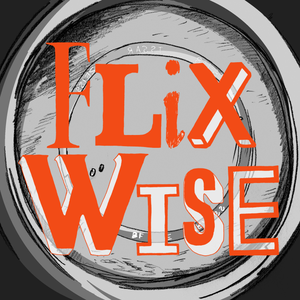 Flixwise Podcast
Flixwise Podcast
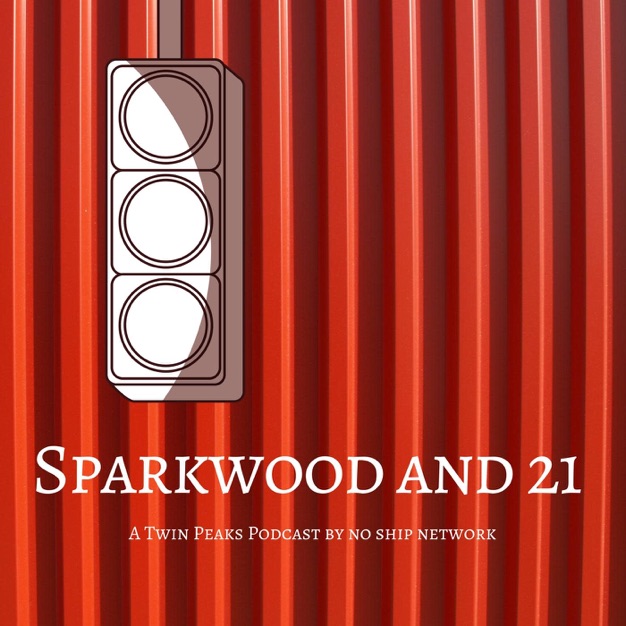 Sparkwood and 21: A Twin Peaks Podcast
Sparkwood and 21: A Twin Peaks Podcast
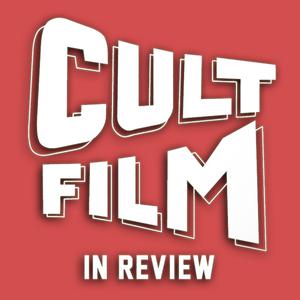 Cult Film In Review
Cult Film In Review